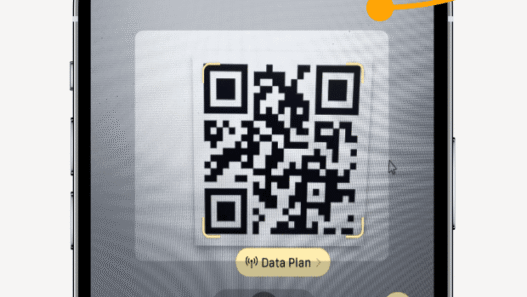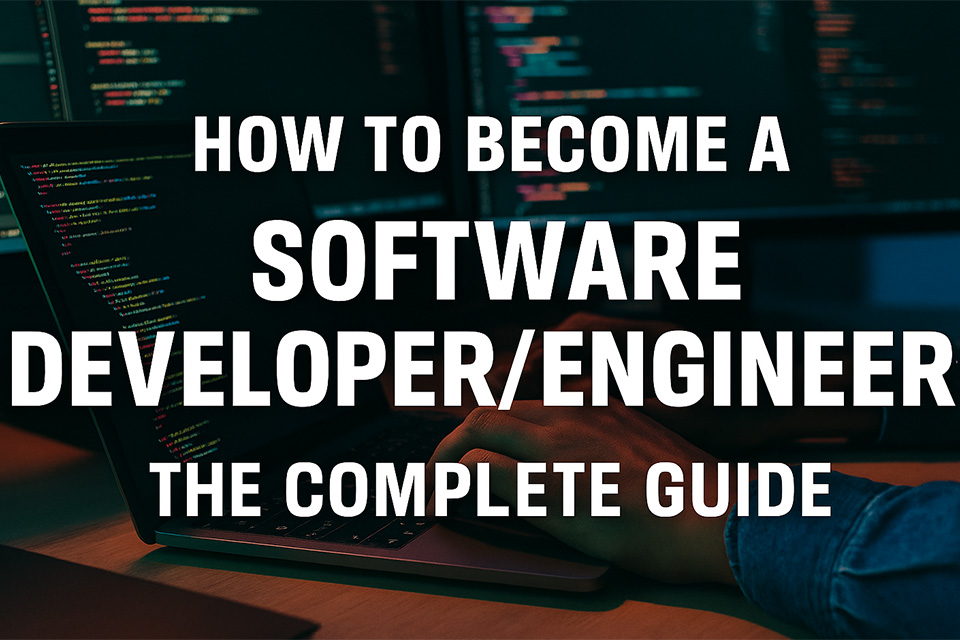Software runs almost everything you interact with daily—your phone, your car, your online banking app, even the vending machine down the hall. Behind all that code are software developers and engineers who wrote it, tested it, and keep it running. If you've ever wondered how to break into this world, the good news is that you don't need to be a math genius or start coding when you're six years old. You just need the right mix of skills, persistence, and a clear roadmap.
Becoming a software developer can lead to an in-demand career, solid income, and the freedom to work anywhere.
Let's walk through what it takes, step by step.
What Does a Software Developer Actually Do?
At its core, software development is about solving problems with code.
Developers write, test, and maintain the programs that power everything from mobile apps to enterprise systems.
Engineers tend to focus on larger-scale design and architecture, but in practice, the titles overlap.
Types of Work Developers Handle
- Web Development – building websites and web applications.
- Mobile Development – creating apps for iOS and Android.
- Backend Development – working on databases, servers, and APIs.
- Frontend Development – crafting what users see and interact with.
- Software Engineering – designing full systems, from planning to scaling.
- Specialties – cybersecurity, machine learning, embedded systems, and more.
Think of it like construction: some people build the storefront, some wire the building, and others make sure the whole structure stands strong.
A Day in the Life
Education: Do You Need a Degree?
The short answer: not always.
Many successful developers have computer science or software engineering degrees, but plenty of others learned through bootcamps or self-study.
College Path
- Pros: Structured learning, credibility with employers, broader understanding of theory.
- Cons: Expensive, time-consuming, not always practical for everyone.
Bootcamps
- Usually 3–6 months long.
- Focus on hands-on skills and getting job-ready fast.
- Costs can range from $5,000 to $20,000.
Self-Taught Route
- Free and low-cost resources online (YouTube, freeCodeCamp, Coursera).
- Requires discipline and a clear roadmap.
- Portfolios matter more than degrees here.
Case Study: The Self-Taught Developer
James was working as a delivery driver but always loved computers. He committed to coding an hour a day after work using free resources like Codecademy and YouTube tutorials. After six months, he built a small web app and started contributing to open-source projects. With a solid GitHub portfolio, he landed an entry-level developer job—without a degree.
Skills You Need to Master
Programming Languages
- Beginner-friendly: Python, JavaScript.
- Popular in jobs: Java, C#, SQL.
- Specialty fields: Swift (iOS), Kotlin (Android), R (data science).
Tools and Concepts
- Git and GitHub (version control).
- Databases (SQL and NoSQL).
- Testing and debugging.
- Cloud platforms (AWS, Azure, Google Cloud).
- Agile development and teamwork.
Soft Skills
- Problem-solving: breaking big problems into manageable chunks.
- Communication: explaining technical stuff to non-technical people.
- Continuous learning: tech evolves, so you have to evolve too.
How to Start Learning
- Pick a beginner-friendly language like Python or JavaScript.
- Follow a structured course (bootcamp, online program, or self-study).
- Build small projects—a calculator app, a personal website, a to-do list.
- Put your work on GitHub.
- Network with other developers (LinkedIn, local meetups, online forums).
The projects you build matter more than the courses you take. Employers want to see proof that you can write usable code.
Case Study: The Bootcamp Grad
Maria wanted a career change after years in retail. She joined a six-month coding bootcamp and built a portfolio of three web applications. Within two months of finishing, she landed her first role as a junior developer at a fintech startup, earning double her previous salary.
Average Salaries
Salaries vary by location, experience, and specialty, but here are rough U.S. averages (2024 data):
- Entry-Level Developer: $55,000–$75,000
- Mid-Level Developer: $80,000–$110,000
- Senior Developer/Engineer: $120,000–$160,000
- Specialized Fields (AI, Security, Cloud): $140,000+
Remote work is common, and in some companies, you can earn Silicon Valley pay while living in a low-cost area.
Is It Hard to Break In?
It can feel overwhelming at first. There are hundreds of languages, frameworks, and tools. The trick is to focus on one area (like web development) and build from there. Employers don't expect new developers to know everything. They want to see curiosity, persistence, and problem-solving ability.
Case Study: The Career Shifter
Ethan worked in finance for a decade but wanted more flexibility. He started taking online courses in his spare time, built small apps for friends, and slowly transitioned into freelancing. Within two years, he was working full-time as a remote software engineer, earning close to his old salary but with far more control over his schedule.
Common Mistakes to Avoid
- Trying to learn too many languages at once.
- Skipping the fundamentals in favor of flashy frameworks.
- Not building projects—courses alone aren't enough.
- Ignoring soft skills like teamwork and communication.
- Giving up too soon—most developers struggle a lot in the beginning.
Final Thoughts
If you want to become a software developer or engineer, you don't need to check every box before you start. The path is flexible: degree, bootcamp, or self-taught. What matters most is persistence and proof of work. Build small projects, grow your skills, and keep stacking experience.
Yes, the field is competitive, but the demand is huge, and new opportunities open up constantly. Whether you're looking for higher pay, remote work freedom, or the satisfaction of building something people use every day, learning how to become a software developer is one of the most valuable moves you can make for your career.
The post How to Become a Software Developer/Engineer appeared first on MoneyMiniBlog.



















